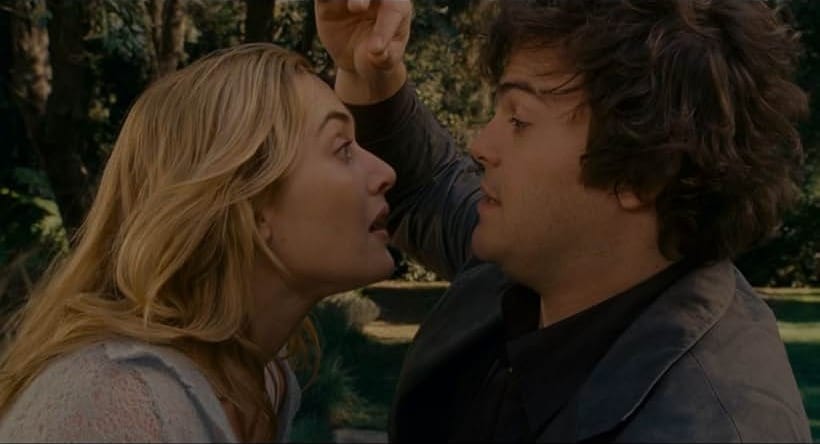By Abbie Holmes, Second Year English
As Christmas finally rears its delightful, capitalist head, there is no doubt that your streaming recommendations will be inundated with the cultural staple of the Christmas romantic comedy. The narrative of most of these films follows some iteration of this: Big-City-Girl hates her big city life but is bound to the city by her unquenchable thirst to pursue her career. Big-City-Girl, for whatever reason, is compelled to go to extremely festive small town, in which Big-City-Girl meets Small-Town-Boy (extra points if he’s royalty) and begins to realise there’s more to life than her soulless, corporate existence back home. Insert a third act breakup, perhaps an identity reveal for dramatic effect, and in the end, they all make snow-angels and live happily ever after. Presumably in Christmas-limbo all year, until December rolls around and Netflix can release a sequel.

These movies have long been regarded as lazy, formulaic cash-grabs, but I have taken it upon myself to defend the Christmas Romcom's continued importance in the canon.
My introduction to the Christmas romcom was slightly off kilter. As my mum put Love, Actually on the telly again I paid little to no attention, because between the ages of four and ten I had exactly one interest, Barbie. Specifically, the Barbie animated movies. I personally have only two Christmas classics, Barbie in a Christmas Carol, and Barbie: A Perfect Christmas. Though these aren’t featured in most people’s yearly rewatches, I think they provide an excellent framework to help understand the key features that make the Christmas romcom such a successful genre.
The reason I draw this parallel boils down to the similarities they share in their target audience, although there’s an age gap, both genres almost exclusively cater to a female audience. It’s a long running joke that not a single Barbie movie passes the reverse Bechdel test. The films know what they are and they don’t waste time developing male characters, or belittling their female ones. And as girls grow into women, the films we watch may mature but these themes remain the same. It is difficult to find media that exclusively caters to women the way these films do, and when you do, it is treated with little respect from the zeitgeist.

This is ironic, because the romantic comedy has and always will be central to our culture, with most classic stories that have stood the test of time being romances. There is a reason we are still adapting Shakespeare’s romcoms into modern iterations à la She’s The Man and 10 Things I Hate About You. A good story, no matter when it was written, resonates with an audience. So why then, is a genre that has such solid, classical roots treated with so little respect
Media that caters to women is frequently disregarded as unambitious and given little funding despite the fact that it can turn a massive profit. The issue is systemic, with men making up 76% of directors, writers, editors and cinematographers working on successful projects, it is no surprise that women as an audience are forgotten. So why, in an industry driven by the profit margin, is the success of the Christmas romcom so easily overlooked? We’ve seen it happen, The Holdovers, was nominated for five Oscars, and although it's not strictly a rom-com, it is a heartfelt Christmas Comedy/Drama with a romantic subplot. (Sound familiar?)
In the months of November and December, Hallmark ranks as the number 1 network among women ages 18-54. This demographic is incredibly advertising friendly. This means that though their movies are relatively cheap to produce, with an average budget of $2 million, they bring in a profit of more than $350 million in just ad revenue. That’s a third of their annual ad revenue from just the Christmas season. If we’re being crass, the point of movies is to tell a story that resonates with an audience, whilst winning awards and making shedloads of money. So, why do directors and production companies not see this incredible source of potential? And more importantly, why is there such a reluctance for male audience to engage with the Christmas romcom.

Ultimately, women are not watching these films in their millions for the ground-breaking plot devices and cinematography. Women simply want to engage in a fun, heartfelt genre that for once actually caters to them. There is far more societal hostility towards fans of romcoms than say, the male centric superhero movie, despite the greater critical acclaim many of the former possess. So, next time you go to roll your eyes at another iteration of ‘Finding Love on my Dead Dad’s Christmas Tree Farm’, question if you would be such a harsh critic if a different audience were intended.
What's your guilty pleasure Christmas romcom?







